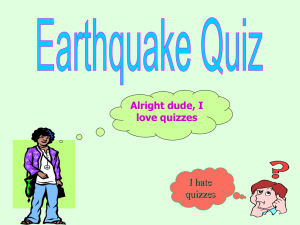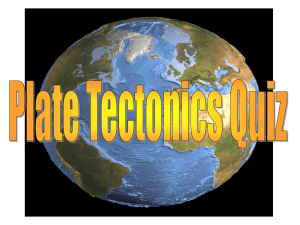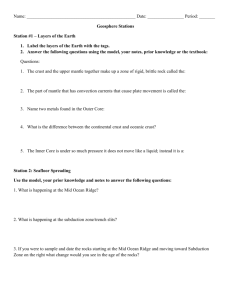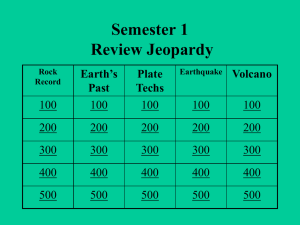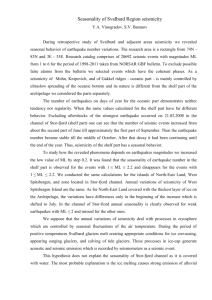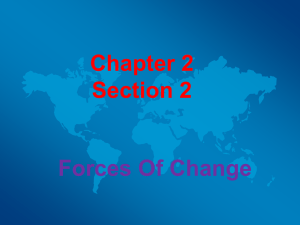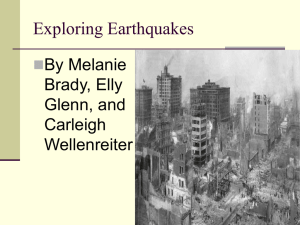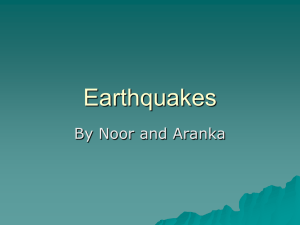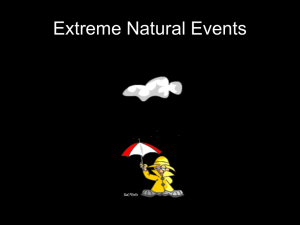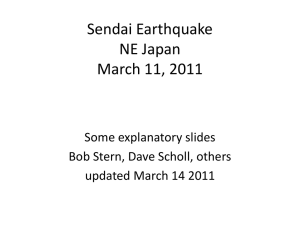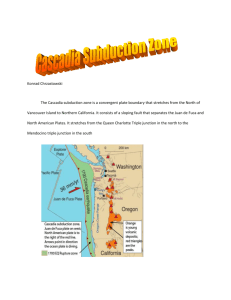Analysing maps of seismic activity to determine plate motion
advertisement
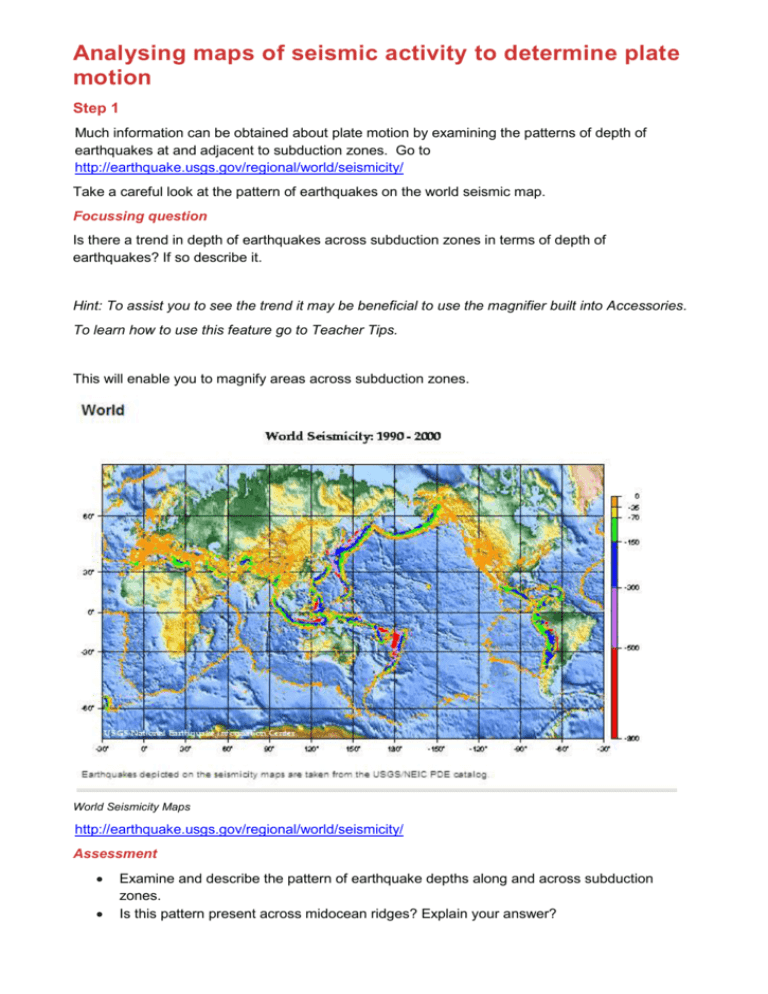
Analysing maps of seismic activity to determine plate motion Step 1 Much information can be obtained about plate motion by examining the patterns of depth of earthquakes at and adjacent to subduction zones. Go to http://earthquake.usgs.gov/regional/world/seismicity/ Take a careful look at the pattern of earthquakes on the world seismic map. Focussing question Is there a trend in depth of earthquakes across subduction zones in terms of depth of earthquakes? If so describe it. Hint: To assist you to see the trend it may be beneficial to use the magnifier built into Accessories. To learn how to use this feature go to Teacher Tips. This will enable you to magnify areas across subduction zones. World Seismicity Maps http://earthquake.usgs.gov/regional/world/seismicity/ Assessment Examine and describe the pattern of earthquake depths along and across subduction zones. Is this pattern present across midocean ridges? Explain your answer? Step 2 Select the Australia, Indonesia and New Zealand map. This will give you a more detailed picture of the pattern of earthquakes across active plate boundaries around the Australian plate. World Seismicity Maps http://earthquake.usgs.gov/regional/world/seismicity/ Activity Examine the map and the pattern of earthquakes at the plate boundaries. Based on the evidence of the depths of earthquakes identify the direction of plate motion at each plate boundary surrounding Australia and describe it. World Seismicity Maps http://earthquake.usgs.gov/regional/world/seismicity/australia.php Activity 1. Choose another area you can identify as a subduction zone and establish the direction of plate motion based on earthquake depth at that subduction zone. Collaborate with other students to determine the direction of plate motion of as many plates as you can based on the evidence of earthquake distribution and depth. 2. Download or obtain a print copy of a world map and draw on the map the location of plate boundaries you can identify from earthquake data and your best guess of plate motion at those boundaries based on the evidence you have collected. Annotate your map with reasons for the plate motion you are suggesting. A good physical map of the world can be downloaded at http://www.mygeo.info/karten/802802.jpg . This map can then be manipulated, drawn on and annotated in Photoshop.
